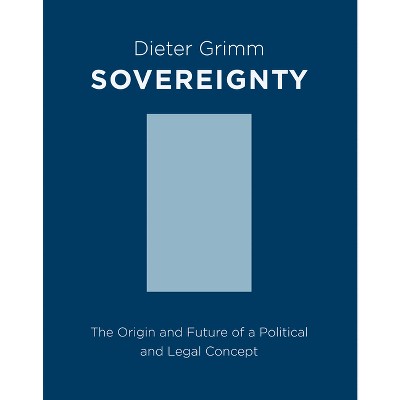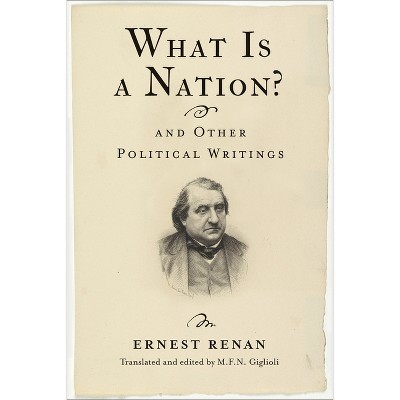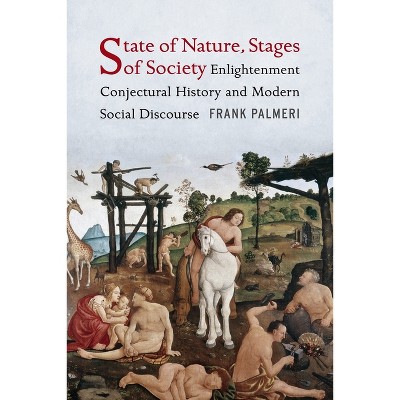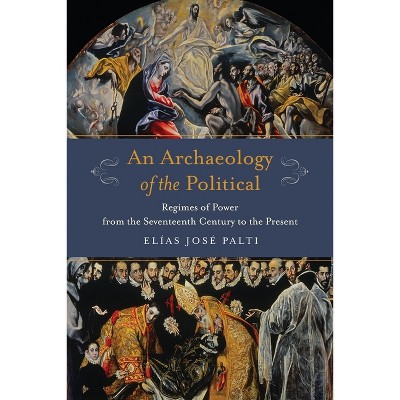States of War - (Columbia Studies in Political Thought / Political History) by David Bates (Paperback)

$38.00 when purchased online
Target Online store #3991
About this item
Highlights
- We fear that the growing threat of violent attack has upset the balance between existential concepts of political power, which emphasize security, and traditional notions of constitutional limits meant to protect civil liberties.
- About the Author: David William Bates is professor of rhetoric at the University of California, Berkeley, and director of the Berkeley Center for New Media.
- 280 Pages
- Political Science, History & Theory
- Series Name: Columbia Studies in Political Thought / Political History
Description
Book Synopsis
We fear that the growing threat of violent attack has upset the balance between existential concepts of political power, which emphasize security, and traditional notions of constitutional limits meant to protect civil liberties. We worry that constitutional states cannot, during a time of war, terror, and extreme crisis, maintain legality and preserve civil rights and freedoms. David Williams Bates allays these concerns by revisiting the theoretical origins of the modern constitutional state, which, he argues, recognized and made room for tensions among law, war, and the social order.
We traditionally associate the Enlightenment with the taming of absolutist sovereign power through the establishment of a legal state based on the rights of individuals. In his critical rereading, Bates shows instead that Enlightenment thinkers conceived of political autonomy in a systematic, theoretical way. Focusing on the nature of foundational violence, war, and existential crises, eighteenth-century thinkers understood law and constitutional order not as constraints on political power but as the logical implication of that primordial force. Returning to the origin stories that informed the beginnings of political community, Bates reclaims the idea of law, warfare, and the social order as intertwining elements subject to complex historical development. Following an analysis of seminal works by seventeenth-century natural-law theorists, Bates reviews the major canonical thinkers of constitutional theory (Locke, Montesquieu, and Rousseau) from the perspective of existential security and sovereign power. Countering Carl Schmitt's influential notion of the autonomy of the political, Bates demonstrates that Enlightenment thinkers understood the autonomous political sphere as a space of law protecting individuals according to their political status, not as mere members of a historically contingent social order.Review Quotes
[A] masterful study.--David Tkach "The Review of Politics"
Bates's own position is supremely original and perfectly and clearly articulated. He shows that the political does not have to lead to fascism and violence and exclusion (clearly it has not prevented these things from taking place) but can have a more progressive, individualist, and anti-exclusionary form.--James Martel, San Francisco State University
In this breakthrough rereading of early-modern thought, David William Bates discovers the origins of liberal norms in and through the creation of a fully autonomous political domain. As Bates shows, it was no accident that construction of internal constitutionalist restraints on the state occurred just as the modern state emerged to its full external potential for global violence. Bates's argument is at the cutting edge in the history of political thought, and his interpretations of Thomas Hobbes, John Locke, and Jean-Jacques Rousseau renovate the study of each author.--Samuel Moyn, Columbia University
About the Author
David William Bates is professor of rhetoric at the University of California, Berkeley, and director of the Berkeley Center for New Media. He is the author of Enlightenment Aberrations: Error and Revolution in France, and, alongside his work on the history of political and legal thought, his research focuses on the intersections between technology and cognition since the Scientific Revolution.Dimensions (Overall): 8.9 Inches (H) x 6.0 Inches (W) x .6 Inches (D)
Weight: .8 Pounds
Suggested Age: 22 Years and Up
Number of Pages: 280
Series Title: Columbia Studies in Political Thought / Political History
Genre: Political Science
Sub-Genre: History & Theory
Publisher: Columbia University Press
Format: Paperback
Author: David Bates
Language: English
Street Date: November 1, 2011
TCIN: 90067582
UPC: 9780231158053
Item Number (DPCI): 247-12-8398
Origin: Made in the USA or Imported
Shipping details
Estimated ship dimensions: 0.6 inches length x 6 inches width x 8.9 inches height
Estimated ship weight: 0.8 pounds
We regret that this item cannot be shipped to PO Boxes.
This item cannot be shipped to the following locations: American Samoa (see also separate entry under AS), Guam (see also separate entry under GU), Northern Mariana Islands, Puerto Rico (see also separate entry under PR), United States Minor Outlying Islands, Virgin Islands, U.S., APO/FPO
Return details
This item can be returned to any Target store or Target.com.
This item must be returned within 90 days of the date it was purchased in store, shipped, delivered by a Shipt shopper, or made ready for pickup.
See the return policy for complete information.











